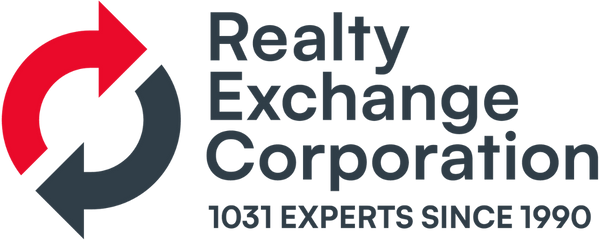We are constantly working to provide more helpful information about 1031 exchanges, and we keep your comments and questions in mind.
Please e-mail us with your questions or comments:
We will respond as quickly as possible.
FAQ’s – Frequently Asked Questions from our customers:
What is a tax-deferred exchange?
It is a process that allows a taxpayer to exchange an investment or business property and defer the payment of the capital gains tax. Normally there is a delay between settlements of the property being relinquished and the replacement property.
What authorizes a deferred exchange?
While exchanges have been used for many years, in June 1991, IRS regulation 1.1031(k) provided specific and clear guidance to implement the famous “Starker” case decisions. The regulation implementing Internal Revenue Code section 1031 passed in 1986.
How did the Tax Reform Bill of 2018 effect 1031 exchanges?
Thanks to Federation of Exchange Accommodators (FEA) and member’s hard work to preserve 1031 exchanges, real property (real estate) exchanges were retained. Personal property (such as equipment, trucks, art) and intangibles ( franchise right, art, collectibles etc) were eliminated. Personal property will now use 100% bonus depreciation from 1/1/2018 for 5 years..
What is the criteria for a deferred exchange
The properties must be like-kind. This means that the property being relinquished must currently be used as an investment or business property. It is not important how the buyer plans to use the property.
The replacement property the exchanger desires to purchase must be identified in 45 days, be anywhere in the United States, and be settled in 180 days. It is not important how the property is currently used, only that it will be used by the exchanger as an investment or business property.
Like-kind investment or business property includes townhouse rentals, land, farms, office condos, warehouses, vacation rentals, etc.
How are capital gains figured?
The potential capital gains that can be deferred is simply the profit plus all the depreciation taken on the property being relinquished.
What are the reinvestment requirements in an exchange?
To be totally tax free, the acquisition cost of the replacement property(ies) must be equal or greater than the adjusted sale price of the relinquished property.
The total cash equity (equity less selling costs) from the relinquished property must be held in a qualified escrow account and must be reinvested in the replacement property(ies). The cash not reinvested (known as “cash boot”) is subject to capital gains tax.
The replacement property must have mortgage debt or new cash added, equal to or greater than the mortgage paid off, or assumed on the relinquished property.
How is the replacement property identified?
Normally, up to three potential replacement properties are identified by address or legal description. The identification must be in writing, signed by the exchanger and delivered to the qualified intermediary.
How are the exchange escrow funds controlled and secured?
The qualified intermediary normally controls the funds so that the exchanger has no right “to receive, pledge, borrow, or otherwise obtain benefits of the cash…held in the escrow account.” Realty Exchange Corporation only holds funds in federally insured accounts. Virginia law, Section 55-525.1, Chapter 27.1, Exchange Facilitators Act – under which Realty Exchange Corporation is covered, and rigorously complies, establishes strict rules to safeguard exchanger escrow funds.
Are there special rules for a qualified intermediary?
The qualified intermediary should be an experienced real estate professional who understands all aspects of the exchange and contract process. IRS regulations specifically exclude the exchanger’s agent, broker, attorney, accountant, most family members and others with a business relationship with the exchanger from serving as the Qualified Intermediary ( QI ).
What is the first step in conducting a deferred exchange?
Agents or investors should contact Realty Exchange Corporation to discuss the proposed exchange and obtain the necessary contract addendum for the property to be relinquished. There must be an exchange agreement signed by both the exchanger and Qualified Intermediary (QI) before the first relinquished property settlement.
What is the role of the qualified intermediary?
The 1031 tax regulation provides for the use of a qualified intermediary when accomplishing a deferred exchange of investment or business real estate.
The qualified intermediary plays an important key role by:
- Providing the Required Exchange Agreement
- Accepting Assignment of All Exchange Contracts
- Providing Notification of the Assignment to All Parties
- Furnishing Instructions to the Settlement Agent
- Establishing a Qualified Escrow Account
- Receiving the 45-day Identification Notice
- Delivering Escrow Funds for Settlement
- Arranging for Direct Deeding of Properties
- Giving a Final Accounting of Escrow Funds and Interest Earned
